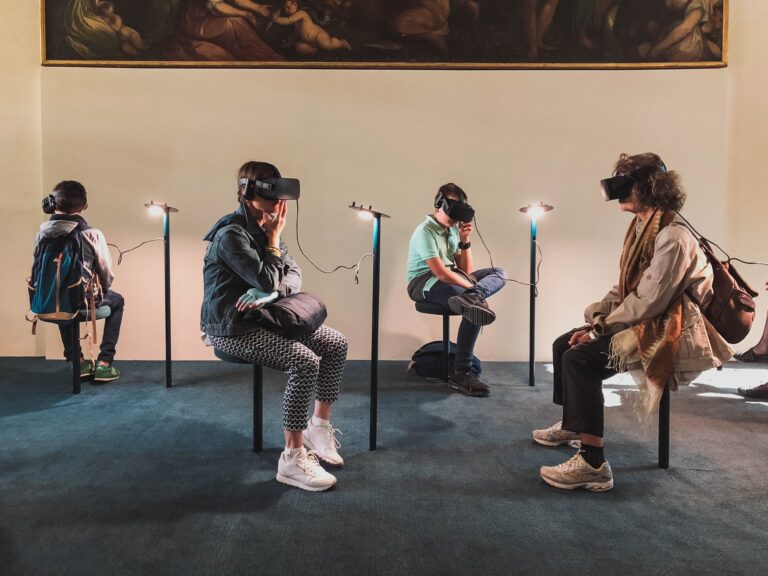Ready or Not
A new generation of workers are wrapping up their degrees and entering the workforce, which means that you will be seeing them soon as your colleagues or employees. While researchers are still trying to figure out Millennials, this new generation brings its own set of workplace knowledge, skills, and values. Introducing: Generation Z.
Who is Gen Z? These are people who were born between 1996 to the early 2000s. Technology, in particular the rapid evolution of how people communicate and interact, is another generation-shaping consideration. What is unique for Generation Z is that television, the internet and even cell phones have been part of their lives from the start. The iPhone launched in 2007, when the oldest Gen Zers were 10. By the time they were in their teens, their primary means of connecting to the web was through mobile devices. Social media, constant connectivity and on-demand entertainment and communication are innovations that other generations have adapted to, but Gen Z have grown up with. It is imperative to keep this technological birthright in mind when designing training for this new workforce.
It’s Not Just What You Teach, but How
While technology should play a pivotal role in training for new workers, it is also important to keep content in mind. The Common Core Standards were adopted into classrooms in 2009, when the oldest Gen Zers were only 13. This means that the majority of this generation’s adolescent education has been examined and tailored to ensure that what they learned was relevant, objective-based, and engaging.
The term “best practices” can be heard in every workplace conference room across the world now, but it has been in the education world since the early 90s. In teacher training programs, teachers are taught how to keep learners active and engaged with hands-on activities and relevant resources. These learners, who were taught under the microscope of best practices, are now entering the workforce and will soon become your learners. In order to keep enthusiasm and momentum in these workers, your training needs to match their pace.
What Gen Z Wants
Generation Z views a college degree as just one step in their educational journey. They realize they must continue their learning while in a job. According to a survey by Deloitte, 26% of Generation Z believe that college taught them the required workplace skills. Conversely, 44% assessed on-the-job training as more valuable.
Those findings were echoed in a Robert Half survey identifying the top 3 factors this group desires in a future employer:
1. Career advancement opportunities
2. A manager I can learn from
3. Professional development and training opportunities
Generation Z employees want to work for a company that helps them advance their careers.
Scenario-based Training for Gen Z
Let’s sum up what we know so far.
- Young workers are skilled in educational tech.
- They are used to being taught with relevant, objective-based, engaging (i.e. hands-on) learning experiences.
- They value continuous learning, and expect it from their employers.
Scenario-based training offers young workers the opportunity to learn the way they learn. Scenario-based learning utilizes real-life scenarios to support active learning. This learning style is interactive, learner-led, designed to meet a specific learning objective. Consider these scenario-based learning styles and how they can impact your young learners.
Video-based Learning
Approximately 62 percent of Generation Z use YouTube daily, and almost all of them have a smartphone, which is their primary way to watch videos ranging from TikTok experimentalists, to professional video game players, to YouTube superstars. The way Gen Z consumes video lessons is far different from traditional video-based learning.
In order to make video learning impactful for younger workers, keep lessons short and concise. Youtubers are advised to keep their videos between seven to 15 minutes, and you should follow suit. In between videos, check for understanding with quick quizzes. Offer immediate feedback on answers and allow employees to complete video training intermittently to avoid information overload.
Branching Scenarios
Branching scenarios are interactive and feature built-in feedback. Every decision brings employees down a different path, which leads to repercussions or rewards. Using branch scenarios, employees are able to test their instincts. This is especially helpful when there is no one right answer to a scenario.
This is reflective of classroom learning that Generation Z experienced. This generation is privy to immediate feedback and explanations. By offering branching scenarios with scenario-based learning, your workers will be able to apply on-the-job learning without the risk of failure in the workplace.
Gamification
Teachers of Generation Z have had to compete with phones and video games for their students’ attention. With this came the gamification of learning. Now, there is not a subject that cannot be taught with a game. This is no exception for your workplace training.
By gamifying your learning, you tap into the innate draw to technology which your young workers already have. You can make this competitive among the team, or just with oneself (think Wordle). Gamify your learning, and you will keep your young learners active, engaged, and motivated.
Keeping employees engaged and interested in training is an ongoing challenge for Human Resources and departmental managers. Fortunately, there are effective techniques and strategies you can use to keep staff members motivated, quality-conscious, and supportive of your company’s mission.
Contact us for more information on how to implement a successful employee training program. Whether your objective is to provide a better training experience for Generation Z or to develop training programs for more experienced staff, scenario-based training is your path for impactful learning in the workplace.




